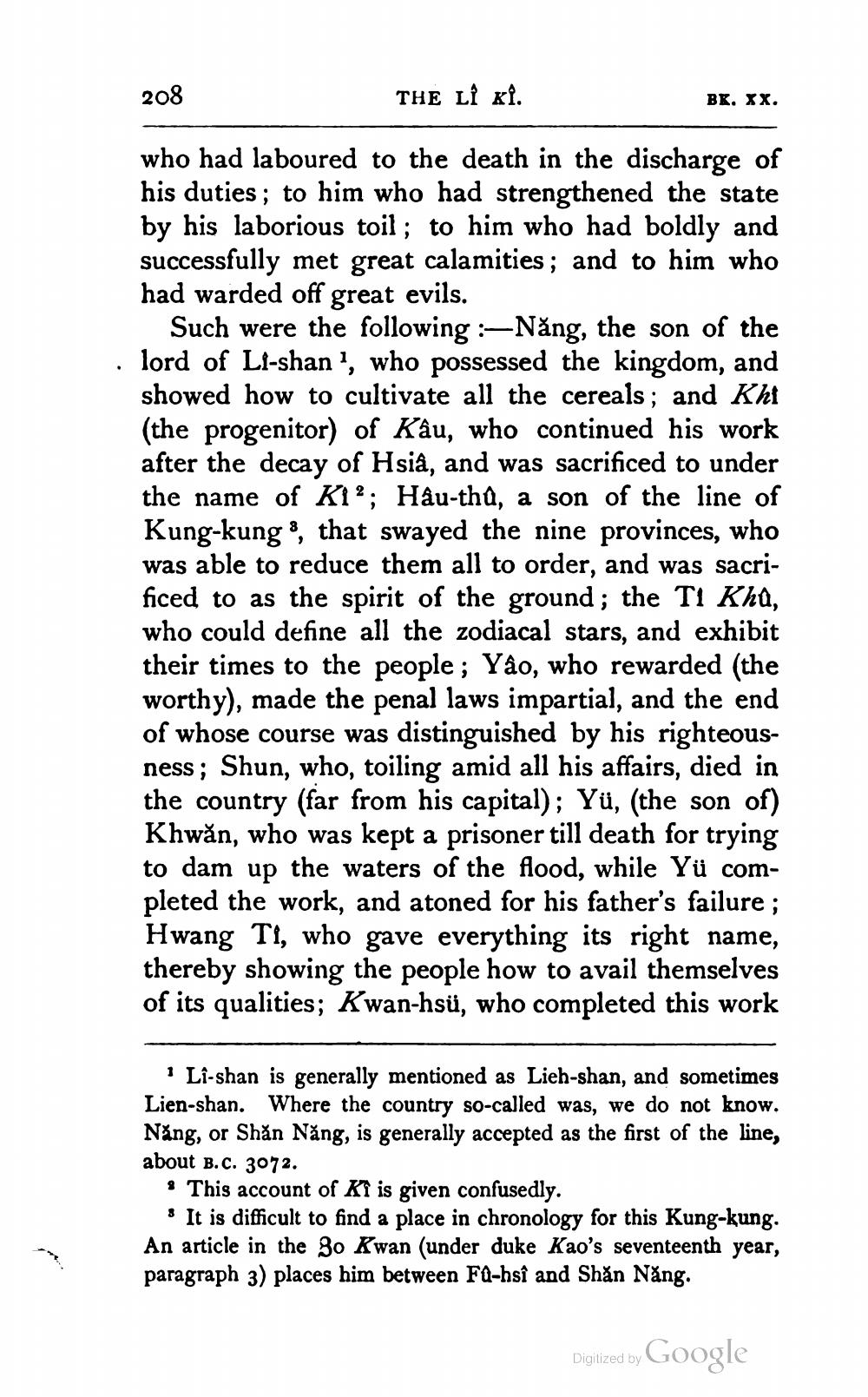________________
208
THE LÎ ki.
BK. XX.
who had laboured to the death in the discharge of his duties; to him who had strengthened the state by his laborious toil; to him who had boldly and successfully met great calamities; and to him who had warded off great evils.
Such were the following :-Năng, the son of the · lord of Li-shan', who possessed the kingdom, and
showed how to cultivate all the cereals; and Khi (the progenitor) of Kâu, who continued his work after the decay of Hsia, and was sacrificed to under the name of K12; Hâu-tha, a son of the line of Kung-kung 8, that swayed the nine provinces, who was able to reduce them all to order, and was sacrificed to as the spirit of the ground; the T1 Kha, who could define all the zodiacal stars, and exhibit their times to the people ; Yao, who rewarded (the worthy), made the penal laws impartial, and the end of whose course was distinguished by his righteousness; Shun, who, toiling amid all his affairs, died in the country (far from his capital); Yü, (the son of) Khwăn, who was kept a prisoner till death for trying to dam up the waters of the flood, while Yü completed the work, and atoned for his father's failure ; Hwang Ti, who gave everything its right name, thereby showing the people how to avail themselves of its qualities; Kwan-hsü, who completed this work
· Lî-shan is generally mentioned as Lieh-shan, and sometimes Lien-shan. Where the country so-called was, we do not know. Năng, or Shăn Năng, is generally accepted as the first of the line, about B.C. 3072.
* This account of Kî is given confusedly.
• It is difficult to find a place in chronology for this Kung-kung. An article in the 30 Kwan (under duke Kao's seventeenth year, paragraph 3) places him between Fa-hsî and Shăn Năng.
Digitized by Google




